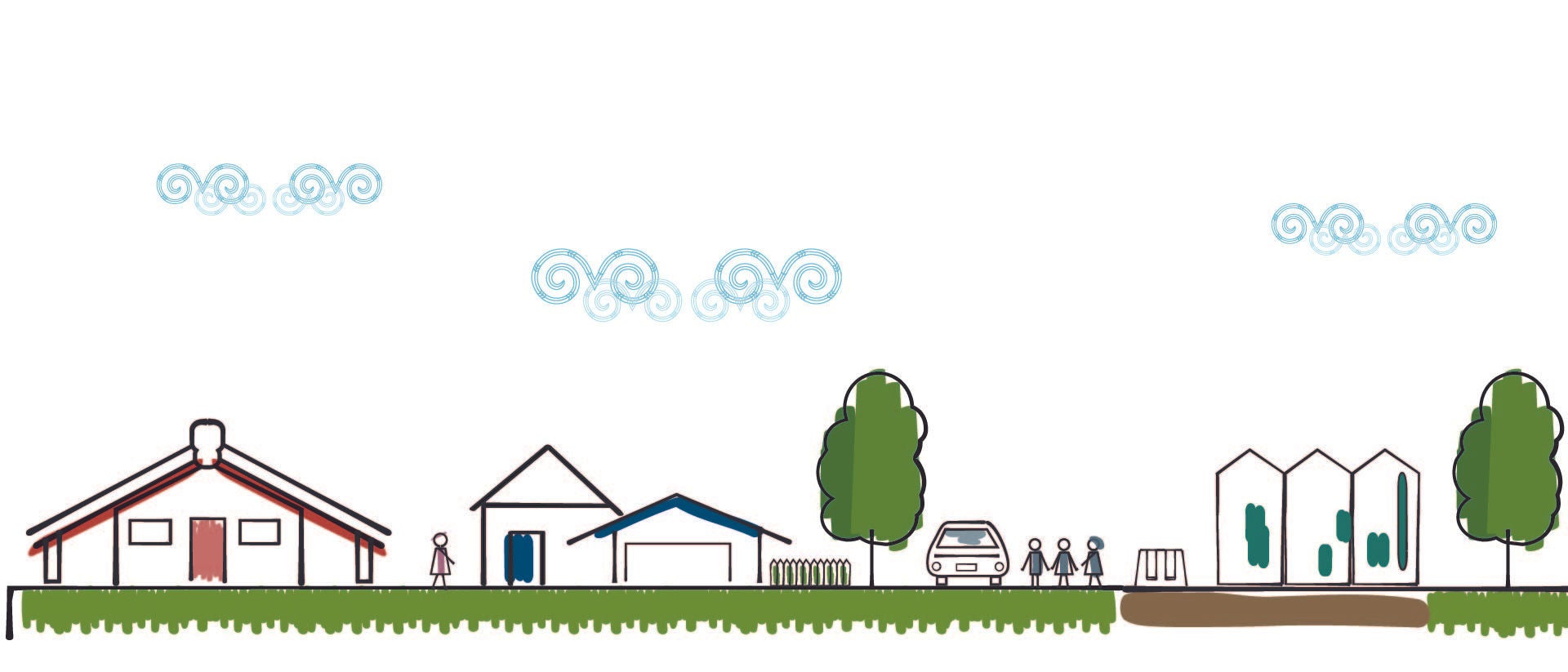He auahi kei uta e taea te karo, he au kei te moana e kore e taea. / You may dodge smoke on land, but you cannot dodge current at sea.
E pā ana ki ngā hapori me te whakaarotau i ngā take tahatai About communities and coast
Why this is a priority
Climate change will affect everyone differently and our ability to adapt depends on local impacts and individual circumstances.
If we don’t take action to reduce our carbon footprint and become more resilient now, then climate change will likely have more significant impacts on our lives, our health, our homes and our livelihoods.

Our people
Some people are disproportionately affected for example, through poverty and insecure housing or health conditions.
Intergenerational equity Ensuring future generations are not unfairly disadvantaged (or burdened) with the impacts and costs of previous decision making., as well as cultural and socio-economic equity, is critical to a fair transition Transforming the economy to one that is more productive, sustainable and inclusive without leaving anyone behind.. As a society, we are only as safe as our most vulnerable.
Preparing for the impacts of climate change and reducing emissions The production and discharge of something e.g. the production and discharge of greenhouse gases into the atmosphere. requires major system changes. Individual, rangatahi Youth, younger generation. and community action is vital in influencing our everyday choices and driving the changes we need.
We all play a role, rethinking how we live, how we travel, the energy we use, what we buy and how we eat.
We know from our surveys that Aucklanders identified the lack of awareness of climate change and what can be done as the second-most important climate change issue facing their local area.
Our formal education sector and community groups play an important role in engaging and connecting rangatahi / youth with the natural environment and providing education for sustainability to foster kaitiakitanga Guardianship, including stewardship; the processes and practices of looking after the environment. and enable climate action.
Our coast
Risks also emerge when people are in areas more exposed to the impacts of climate change, for example flooding, sea level rise or heat.
Our coasts are changing as a result of natural and human processes, including the impacts of climate change.
Addressing these impacts must be collaborative, working across levels of government, with mana whenua Hapū and iwi with ancestral relationships to certain areas in Tāmaki Makaurau where they exercise customary authority. and affected communities.
We need to manage our changing coastline together through careful planning, working with iwi and communities to make the right decisions for their areas – see our Coastal management plans.
Our approach to adapting to climate change
The approach to adaptation needs to be able to change with the needs of the community and as we see the implications of climate change increase.
Dynamic adaptation policy pathways (DAPP) takes this approach to make sure the decisions being made are planned with the community over time.
We need local skills, knowledge and energy to build community resilience to the impacts of climate change. Our resilience has often been tested, for example through pandemics, and we can learn from our experiences to ensure no one is left behind.
Read about roles and partnerships to deliver our actions and the indicators that track our progress for the communities and coast priority.
